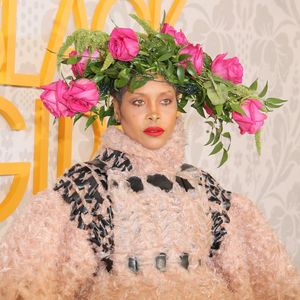Beauty & The Black Dollar: Why Our Collective Power Is Key To The Survival Of Black-Owned Businesses
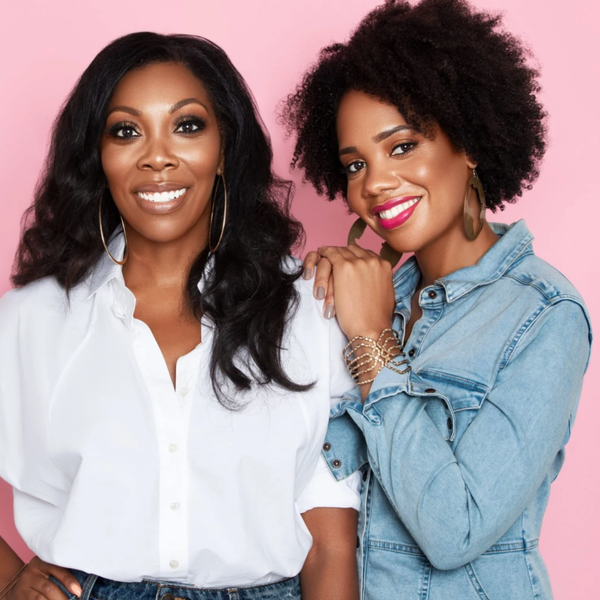
For months we've been adjusting to a new way of working, living, and connecting as COVID-19 and its effects actualize themselves in our lives. And while I've personally forgone my hopes of a traditional #HotGirlSummer, some states have announced plans to re-open despite warnings from officials that the pandemic is "far from over." This, paired with weeks of global unrest in response to yet another wrongful murder of a Black person, has left the most vulnerable communities in a season of constant change.
Black and woman-owned small businesses are among them.
From Madam C.J. Walker to Honeypot's Beatrice Dixon, Black women entrepreneurs have played a vital role in our country's business landscape, spreading their magic across industries and color lines. And although these have proven to be trying times, a renewed focus on these contributions has resulted in a swell of support and heightened interest in seeing Black women-owned entities succeed.
Founders like Yelitsa Jean-Charles of Healthy Roots Dolls can attest to this after a now-viral Tweet translated into sales typically seen over the course of months, in just two days.
The Founder: The Product: pic.twitter.com/o5SNHB368q
— Yelitsa Jean-Charles (@TheYelitsa) June 6, 2020
People are looking for ways to support and reinvest in Black communities to honor their contributions and combat racial inequities that have been hindering their economic and social progression for generations.
I spoke with Black women beauty entrepreneurs who shared more about how they've faced these challenges head-on, and how this surge of support can impact the future of the beauty industry and Black businesses at-large.
-----------------
In late March, millions of Americans began awaiting their $1,200 cut from the CARES Act as a means to withstand rising unemployment and the residual economic onslaught. Similar programs were also put in place to protect small businesses, but not without their own set of hurdles.
The Paycheck Protection Program (PPP), one of the more popular aid programs, provides low-interest loans to small businesses. But with a lack of concrete guidelines and the exhaustion of initial funds after just 13 days, countless small and minority-owned businesses were left helpless while larger companies received million-dollar bailouts.
"If you target your aid toward a certain type of business, we will come out of this pandemic and we will only have that type of business,'' said Amaya Smith, co-founder of the Brown Beauty Co-op. Smith and fellow beauty entrepreneur Kimberly Smith (no relation) co-founded the Sephora-esque beauty hub in 2018. The boutique celebrates women of color by fostering an inclusive community through its featured products, events, and beauty services.
Even in normal circumstances, Black women disproportionately lack investment capital and other resources needed to maintain their businesses and are often sole proprietorships. Despite being the fastest-growing segment of entrepreneurs in the country, they receive less than 1% in venture funding, leaving many without the emergency cash reserves sufficient for said survival.
Early numbers also show a record plummet in the number of active business owners from February to April 2020 as a result of the pandemic.
Of those, Black and female-owned small businesses have been impacted the most, experiencing a 41% and 25% decrease in activity, respectively.
"So, how do we help and support businesses who already had challenges with funding and didn't have as much access before?" Amaya continued. "I actually hope that this period of time highlights the disparity in funding and capital between businesses."
Image: Jhavon Kashif, Founder, Nailbed & Bar
For nail salon-owner Jhavon Kashif, the pandemic has presented the second largest threat to the Nailbed & Bar in its young two-year history.
"The first was the federal government shutdown [of 2019] and here we are with COVID-19, so we've been able to weather those storms but it has been a challenge," Jhavon shared.
-----------------
Beauty and the Black Dollar
We're seeing a global outcry against racism and the structural injustices experienced by Black Americans now more than ever. In addition to the impact of coronavirus, Black entrepreneurs find themselves managing their businesses in the crossfire of backlash many brands are receiving in their not-so-genuine support of Black Lives Matter.
Once taboo, corporate leaders across industries have also announced their support for anti-racist efforts and Black Lives.
Campaigns and calls for action like #PullUpOrShutUp, created by Uoma Beauty founder Sharon Chuter, are highlighting the beauty industry's lack of Black representation and pushing for organizational change to address it.
The Brown Beauty Co-op penned an open letter to Sephora in support of the campaign, expressing their disappointment in the brand's lack of accountability for minimal diversity among executives and mistreatment of customers of color.
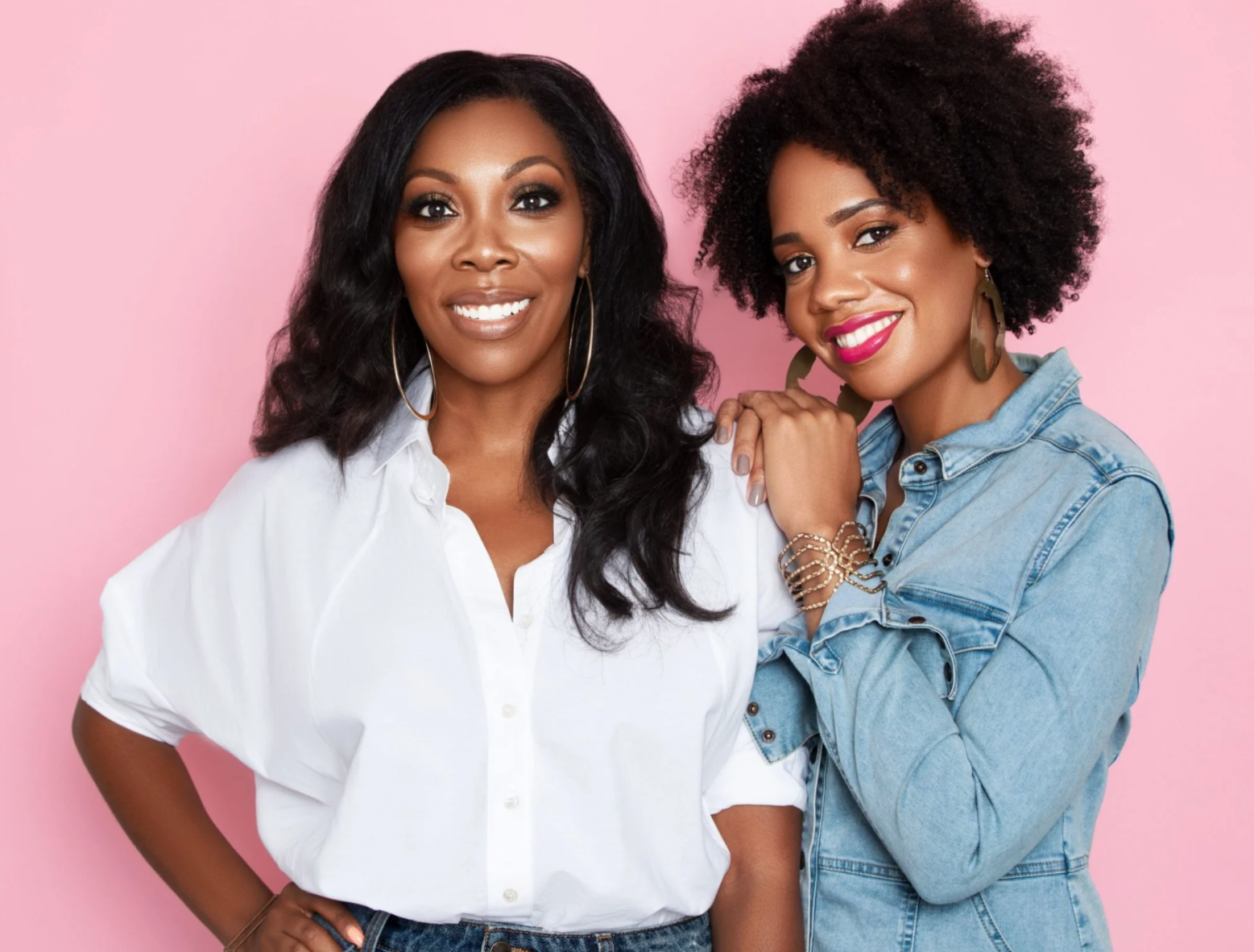
Image: Kimberly Smith and Amaya Smith, Co-founders, The Brown Beauty Co-op
Up until this pivotal point, many industries have neglected Black consumers, their spending power, and the importance of inclusive marketing and business practices, all while profiting from their influence.
According to a 2018 Nielson report, Black shoppers aren't only spending on products created to appeal to them, but spend considerably more money in the general beauty marketplace in comparison to their counterparts. "Our research shows that Black consumer choices have a 'cool factor' that has created a halo effect, influencing not just consumers of color but the mainstream as well," said Cheryl Grace, Senior Vice President of U.S. Strategic Community Alliances and Consumer Engagement at Nielsen on the report's findings.
The current state of affairs also reveals the economic and racial inequities that have accumulated and hindered the Black community over time. In fact, studies show us that the Black-white wealth gap remains as wide as it was in 1968.
Our dollar matters, and choosing to spend it at Black businesses is an act of economic activism, one that will have implications for generations to come.
The renewed attention of the protests has amplified the harsh duality of Black experiences to the masses, resulting in an outpour of support and celebration of Black art, beauty, history, and of course, Black business.
"My hope that the support of Black business will continue beyond the protest," said Jhavon on the recent wave of support.
-----------------
Black Women Keep it Pushing in Times of Trouble
The beauty industry relies heavily on personal interactions and physical experiences. Shoppers love to try and test before purchasing and entrepreneurs have had to get crafty about everything from marketing to providing its normal services.
"[During the shutdown] foot traffic was impacted, appointments and walk-ins, but it wasn't anything like this," said Jhavon of the pandemic. "Our doors are closed. We cannot accept anyone in our space to render any kind of service, so we really had to focus on marketing in a different way. One thing that we do that has been helpful is that we produce a lot of our products in-house."
In addition to adapting its luxury salon offerings into a Happy Healthy Nails at-Home kit, the salon expanded the promotion of other original nail care products to drive sales through its e-commerce platform.
As with most devastating events, opportunities remain for Black beauty entrepreneurs to be nimble and personally connect with communities in a way that other large retailers, like those called out in the #PullUpOrShutUp campaign, often cannot.
"Although this is a tough period, it's through these tough periods that a lot of businesses are able to come out better on the other side," said Amaya of the Brown Beauty Co-op. The boutique has kept their community of beauty enthusiasts and founders engaged with a series of virtual shopping parties, entrepreneurship social hours, and Shop Brown Saturdays in addition to its fundraising efforts.
"We're really taking advantage of social media [and] different types of virtual meetings so that we can keep our current customer base engaged but also so we can gain new customers through this," she continued. "I think being transparent is the most important."
-----------------
The harnessing of our collective power will play a key role in the survival of Black and women-owned small businesses. While we collectively work toward a more inclusive society, buying Black ensures our voices are heard and communities are supported.
Learn more about the Black beauty brands and Black businesses, you can support here.
Featured image courtesy of The Brown Beauty Co-op
Because We Are Still IT, Girl: It Girl 100 Returns
Last year, when our xoNecole team dropped our inaugural It Girl 100 honoree list, the world felt, ahem, a bit brighter.
It was March 2024, and we still had a Black woman as the Vice President of the United States. DEI rollbacks weren’t being tossed around like confetti. And more than 300,000 Black women were still gainfully employed in the workforce.
Though that was just nineteen months ago, things were different. Perhaps the world then felt more receptive to our light as Black women.
At the time, we launched It Girl 100 to spotlight the huge motion we were making as dope, GenZennial Black women leaving our mark on culture. The girls were on the rise, flourishing, drinking their water, minding their business, leading companies, and learning to do it all softly, in rest. We wanted to celebrate that momentum—because we love that for us.
So, we handpicked one hundred It Girls who embody that palpable It Factor moving through us as young Black women, the kind of motion lighting up the world both IRL and across the internet.
It Girl 100 became xoNecole’s most successful program, with the hashtag organically reaching more than forty million impressions on Instagram in just twenty-four hours. Yes, it caught on like wildfire because we celebrated some of the most brilliant and influential GenZennial women of color setting trends and shaping culture. But more than that, it resonated because the women we celebrated felt seen.
Many were already known in their industries for keeping this generation fly and lit, but rarely received recognition or flowers. It Girl 100 became a safe space to be uplifted, and for us as Black women to bask in what felt like an era of our brilliance, beauty, and boundless influence on full display.
And then, almost overnight, it was as if the rug was pulled from under us as Black women, as the It Girls of the world.
Our much-needed, much-deserved season of ease and soft living quickly metamorphosed into a time of self-preservation and survival. Our motion and economic progression seemed strategically slowed, our light under siege.
The air feels heavier now. The headlines colder. Our Black girl magic is being picked apart and politicized for simply existing.
With that climate shift, as we prepare to launch our second annual It Girl 100 honoree list, our team has had to dig deep on the purpose and intention behind this year’s list. Knowing the spirit of It Girl 100 is about motion, sauce, strides, and progression, how do we celebrate amid uncertainty and collective grief when the juice feels like it is being squeezed out of us?
As we wrestled with that question, we were reminded that this tension isn’t new. Black women have always had to find joy in the midst of struggle, to create light even in the darkest corners. We have carried the weight of scrutiny for generations, expected to be strong, to serve, to smile through the sting. But this moment feels different. It feels deeply personal.
We are living at the intersection of liberation and backlash. We are learning to take off our capes, to say no when we are tired, to embrace softness without apology.
And somehow, the world has found new ways to punish us for it.

In lifestyle, women like Kayla Nicole and Ayesha Curry have been ridiculed for daring to choose themselves. Tracee Ellis Ross was labeled bitter for speaking her truth about love. Meghan Markle, still, cannot breathe without critique.
In politics, Kamala Harris, Letitia James, and Jasmine Crockett are dragged through the mud for standing tall in rooms not built for them.
In sports, Angel Reese, Coco Gauff, and Taylor Townsend have been reminded that even excellence will not shield you from racism or judgment.

In business, visionaries like Diarrha N’Diaye-Mbaye and Melissa Butler are fighting to keep their dreams alive in an economy that too often forgets us first.
Even our icons, Beyoncé, Serena, and SZA, have faced criticism simply for evolving beyond the boxes society tried to keep them in.
From everyday women to cultural phenoms, the pattern is the same. Our light is being tested.

And yet, somehow, through it all, we are still showing up as that girl, and that deserves to be celebrated.
Because while the world debates our worth, we keep raising our value. And that proof is all around us.
This year alone, Naomi Osaka returned from motherhood and mental health challenges to reach the semifinals of the US Open. A’ja Wilson claimed another MVP, reminding us that beauty and dominance can coexist. Brandy and Monica are snatching our edges on tour. Kahlana Barfield Brown sold out her new line in the face of a retailer that had been canceled. And Melissa Butler’s company, The Lip Bar, is projecting a forty percent surge in sales.

We are no longer defining strength by how much pain we can endure. We are defining it by the unbreakable light we continue to radiate.
We are the women walking our daily steps and also continuing to run solid businesses. We are growing in love, taking solo trips, laughing until it hurts, raising babies and ideas, drinking our green juice, and praying our peace back into existence.
We are rediscovering the joy of rest and realizing that softness is not weakness, it is strategy.
And through it all, we continue to lift one another. Emma Grede is creating seats at the table. Valeisha Butterfield has started a fund for jobless Black women. Arian Simone is leading in media with fearless conviction. We are pouring into each other in ways the world rarely sees but always feels.

So yes, we are in the midst of societal warfare. Yes, we are being tested. Yes, we are facing economic strain, political targeting, and public scrutiny. But even war cannot dim a light that is divinely ours.
And we are still shining.
And we are still softening.
And we are still creating.
And we are still It.

That is the quiet magic of Black womanhood, our ability to hold both truth and triumph in the same breath, to say yes, and to life’s contradictions.
It is no coincidence that this year, as SheaMoisture embraces the message “Yes, And,” they stand beside us as partners in celebrating this class of It Girls. Because that phrase, those two simple words, capture the very essence of this moment.
Yes, we are tired. And we are still rising.
Yes, we are questioned. And we are the answer.
Yes, we are bruised. And we are still beautiful.

This year’s It Girl 100 is more than a list. It is a love letter to every Black woman who dares to live out loud in a world that would rather she whisper. This year’s class is living proof of “Yes, And,” women who are finding ways to thrive and to heal, to build and to rest, to lead and to love, all at once.
It is proof that our joy is not naive, our success not accidental. It is the reminder that our light has never needed permission.
So without further ado, we celebrate the It Girl 100 Class of 2025–2026.
We celebrate the millions of us who keep doing it with grace, grit, and glory.
Because despite it all, we still shine.
Because we are still her.
Because we are still IT, girl.
Meet all 100 women shaping culture in the It Girl 100 Class of 2025. View the complete list of honorees here.
Featured image by xoStaff
These Black Women Left Their Jobs To Turn Their Wildest Dreams Into Reality
“I’m too big for a f***ing cubicle!” Those thoughts motivated Randi O to kiss her 9 to 5 goodbye and step into her dreams of becoming a full-time social media entrepreneur. She now owns Randi O P&R. Gabrielle, the founder of Raw Honey, was moving from state to state for her corporate job, and every time she packed her suitcases for a new zip code, she regretted the loss of community and the distance in her friendships. So she created a safe haven and village for queer Black people in New York.
Then there were those who gave up their zip code altogether and found a permanent home in the skies. After years spent recruiting students for a university, Lisa-Gaye Shakespeare became a full-time travel influencer and founded her travel company, Shakespeare Agency. And she's not alone.
These stories mirror the experiences of women across the world. For millions, the pandemic induced a seismic shift in priorities and desires. Corporate careers that were once hailed as the ultimate “I made it” moment in one's career were pushed to the back burner as women quit their jobs in search of a more self-fulfilling purpose.
xoNecole spoke to these three Black women who used the pandemic as a springboard to make their wildest dreams a reality, the lessons they learned, and posed the question of whether they’ll ever return to cubicle life.
Answers have been edited for context and length.
xoNecole: How did the pandemic lead to you leaving the cubicle?
Randi: I was becoming stagnant. I was working in mortgage and banking but I felt like my personality was too big for that job! From there, I transitioned to radio but was laid off during the pandemic. That’s what made me go full throttle with entrepreneurship.
Gabrielle: I moved around a lot for work. Five times over a span of seven years. I knew I needed a break because I had experienced so much. So, I just quit one day. Effective immediately. I didn’t know what I was going to do, I just knew I needed a break and to just regroup.
Lisa-Gaye: I was working in recruiting at a university and my dream job just kind of fell into my lap! But, I never got to fully enjoy it before the world shut down in March [2020] and I was laid off. On top of that, I was stuck in Miami because Jamaica had closed its borders due to the pandemic before I was able to return.
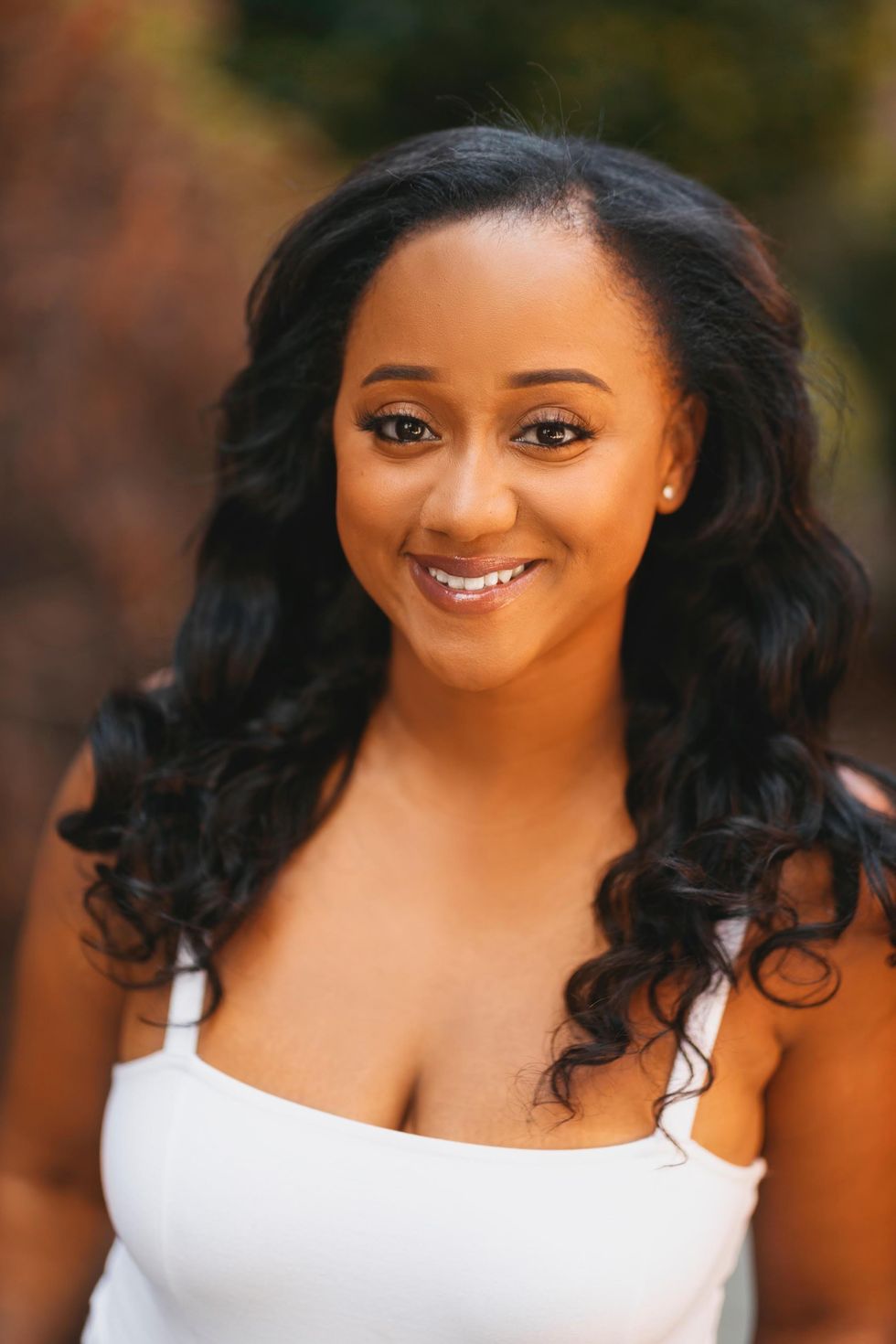
Randi O
xoN: Tell us about your journey after leaving Corporate America.
Randi: I do it all now! I have a podcast, I’m an on-air talent, I act, and I own a public relations company that focuses on social media engagement. It’s all from my network. When you go out and start a business, you can’t just say, “Okay I’m done with Corporate America,” and “Let me do my own thing.” If you don’t build community, if you don’t build a network it's going to be very hard to sustain.
Gabrielle: I realized in New York, there was not a lot to do for Black lesbians and queer folks. We don’t really have dedicated bars and spaces so I started doing events and it took off. I started focusing on my brand, Raw Honey. I opened a co-working space, and I was able to host an NYC Pride event in front of 100,000 people. I hit the ground running with Raw Honey. My events were all women coming to find community and come together with other lesbians and queer folks. I found my purpose in that.
Lisa-Gaye: After being laid off, I wrote out all of my passions and that’s how I came up with [my company] Shakespeare Agency. It was all of the things that I loved to do under one umbrella. The pandemic pulled that out of me. I had a very large social media following, so I pitched to hotels that I would feature them on my blog and social media. This reignited my passion for travel. I took the rest of the year to refocus my brand to focus solely on being a content creator within the travel space.
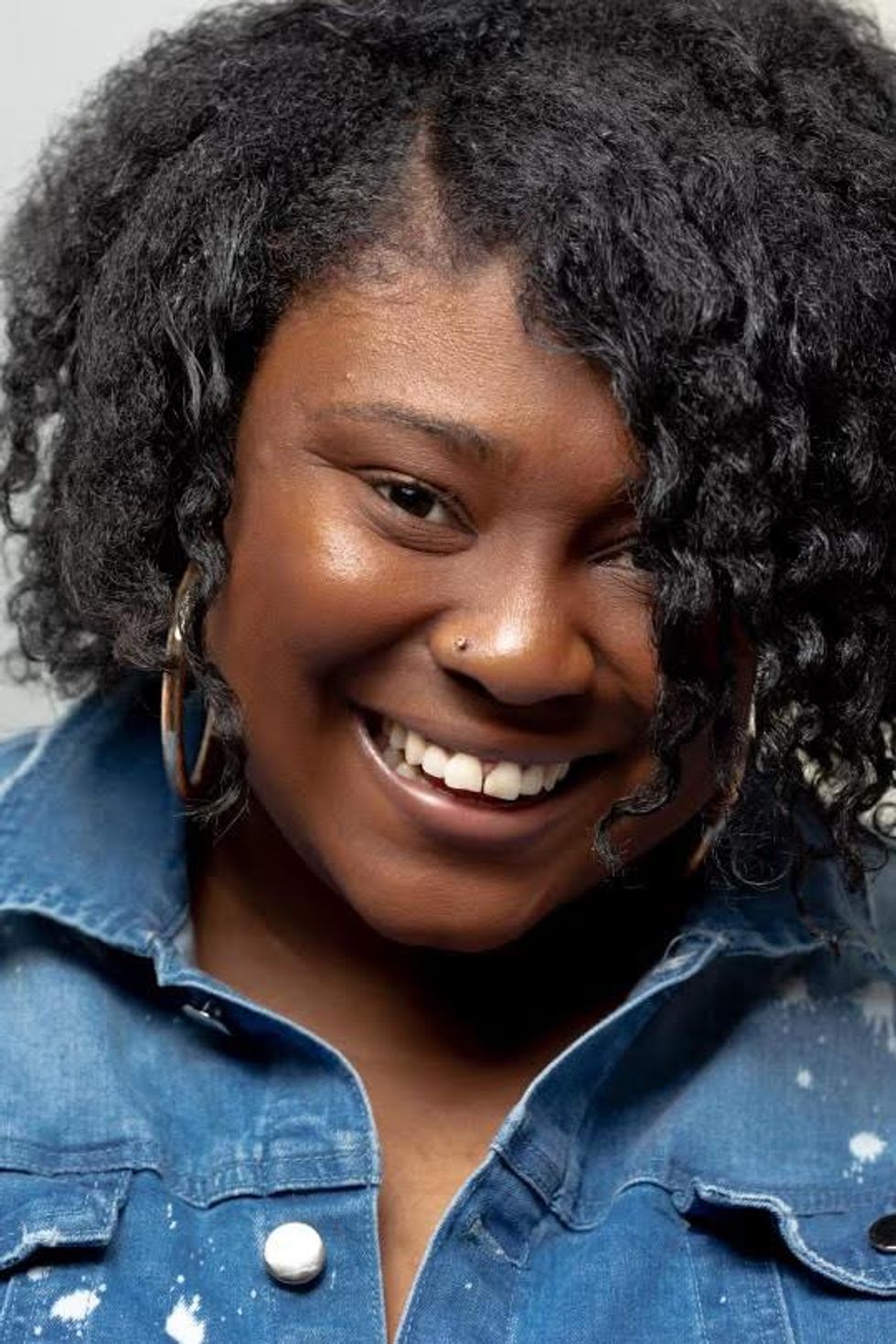
Gabrielle
xoN: What have you learned about yourself during your time as an entrepreneur?
Randi: [I learned] the importance of my network and community that I created. When I was laid off I was still keeping those relationships with people that I used to work with. So it was easy for me to transition into social media management and I didn’t have to start from scratch.
Gabrielle: The biggest thing I learned about myself was my own personal identity as a Black lesbian and how much I had assimilated into straight and corporate culture and not being myself. Now, I feel comfortable and confident being my authentic self. Now, I'm not sacrificing anything else for my career. I have a full life. I have friends. I have a social life. And when you are happy and have a full quality of life, I feel like [I] can have more longevity in my career.
Lisa-Gaye: [I'm doing] the best that I've ever done. The discipline that I’m building within myself. Nobody is saying, ‘Oh you have to be at work at this time.’ There’s no boss saying, ‘Why are you late?’ But, if I’m laying in bed at 10 a.m. then it's me saying [to myself], 'Okay, Lisa, get up, it's time for you to start working!’ That’s all on me.
xoNecole: What mistakes do you want to help people avoid when leaving Corporate America?
Randi: You have to learn about the highs and lows of entrepreneurship. You have a fast season and a slow season and I started to learn that when you're self-employed the latter season hits hard. Don't get caught up on the lows, just keep going and don't stop. I’m glad I did.
Gabrielle: I think everyone should quit their job and just figure it out for a second. You will discover so much about yourself when you take a second to just focus on you. Your skill set will always be there. You can’t be afraid of what will happen when you bet on yourself.
Lisa-Gaye: When it comes to being an influencer the field is saturated and a lot of people suffer from imposter syndrome. There is nothing wrong with being an imposter but find out how to make it yours, how to make it better. If you go to the store, you see 10 million different brands of bread! But you are choosing the brand that you like because you like that particular flavor.
So be an imposter, but be the best imposter of yourself and add your own flair, your own flavor. Make the better bread. The bread that you want.
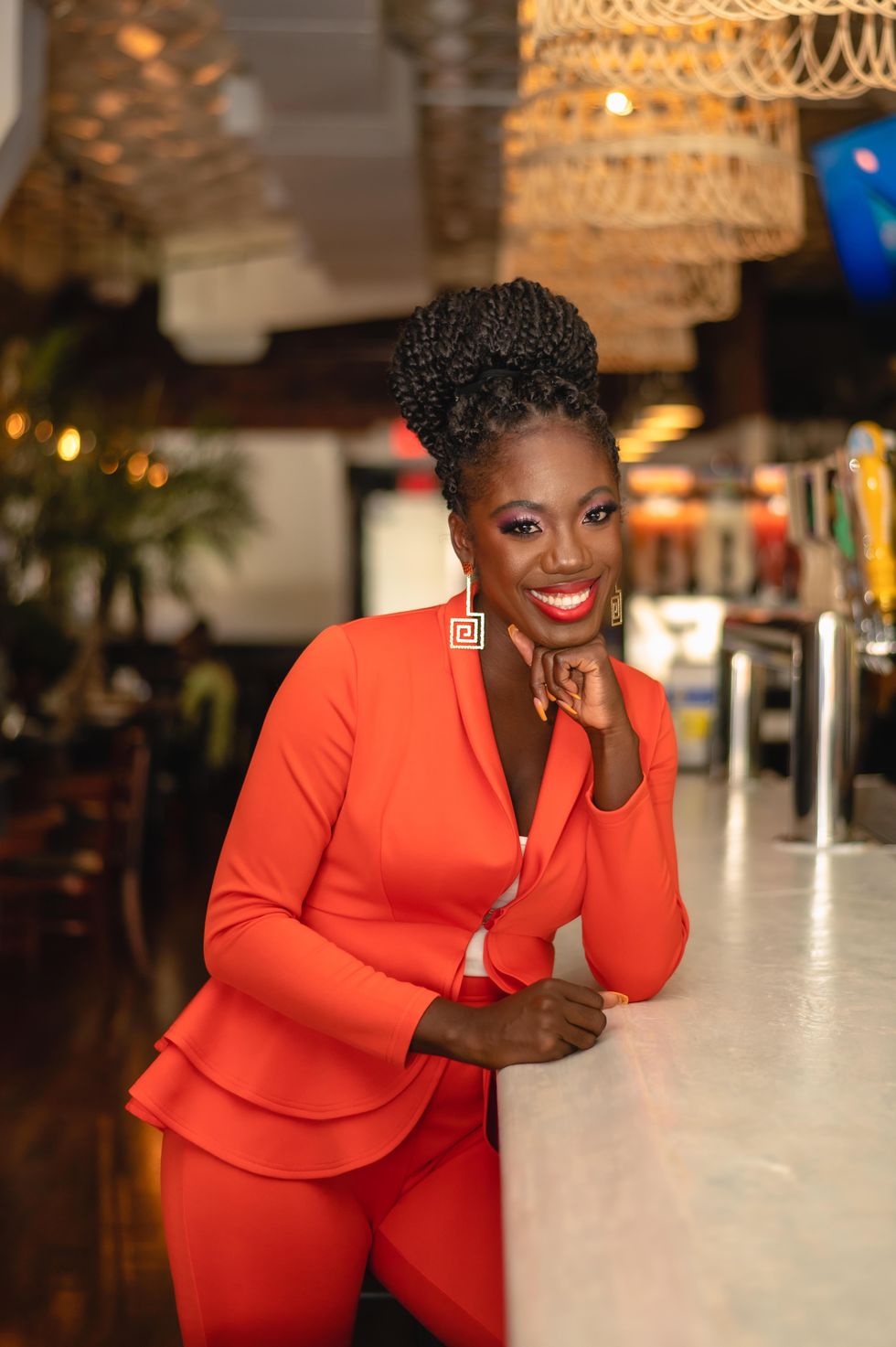
Lisa-Gaye Shakespeare
xoNecole: Will you ever return to your 9 to 5?
Randi: I wouldn’t go back to Corporate America. But I don’t mind working under someone. A lot of people try to get into this business saying, “I can't work under anyone.” That’s not necessarily the reason to start a business because you're always going to answer to somebody. Clients, brands, there’s always someone else involved.
Gabrielle: I went back! I really needed a break and I gave myself that. But, I realized I’m a corporate girl, [and] I enjoy the work that I do. I’m good at it and I really missed that side of myself. I have different sides of me and my whole identity is not Raw Honey or my queerness. A big side of me is business and that’s why I love having my career. Now I feel like my best self.
Lisa-Gaye: I really don’t. For right now, I love working for myself. It's gratifying, it's challenging, it's exciting. It’s a big deal for me to say I own my own business. That I am my own boss, and I'm a Black woman doing it.
Let’s make things inbox official! Sign up for the xoNecole newsletter for love, wellness, career, and exclusive content delivered straight to your inbox.
Featured image courtesy of Lisa-Gaye Shakespeare
Originally published on February 6, 2023


